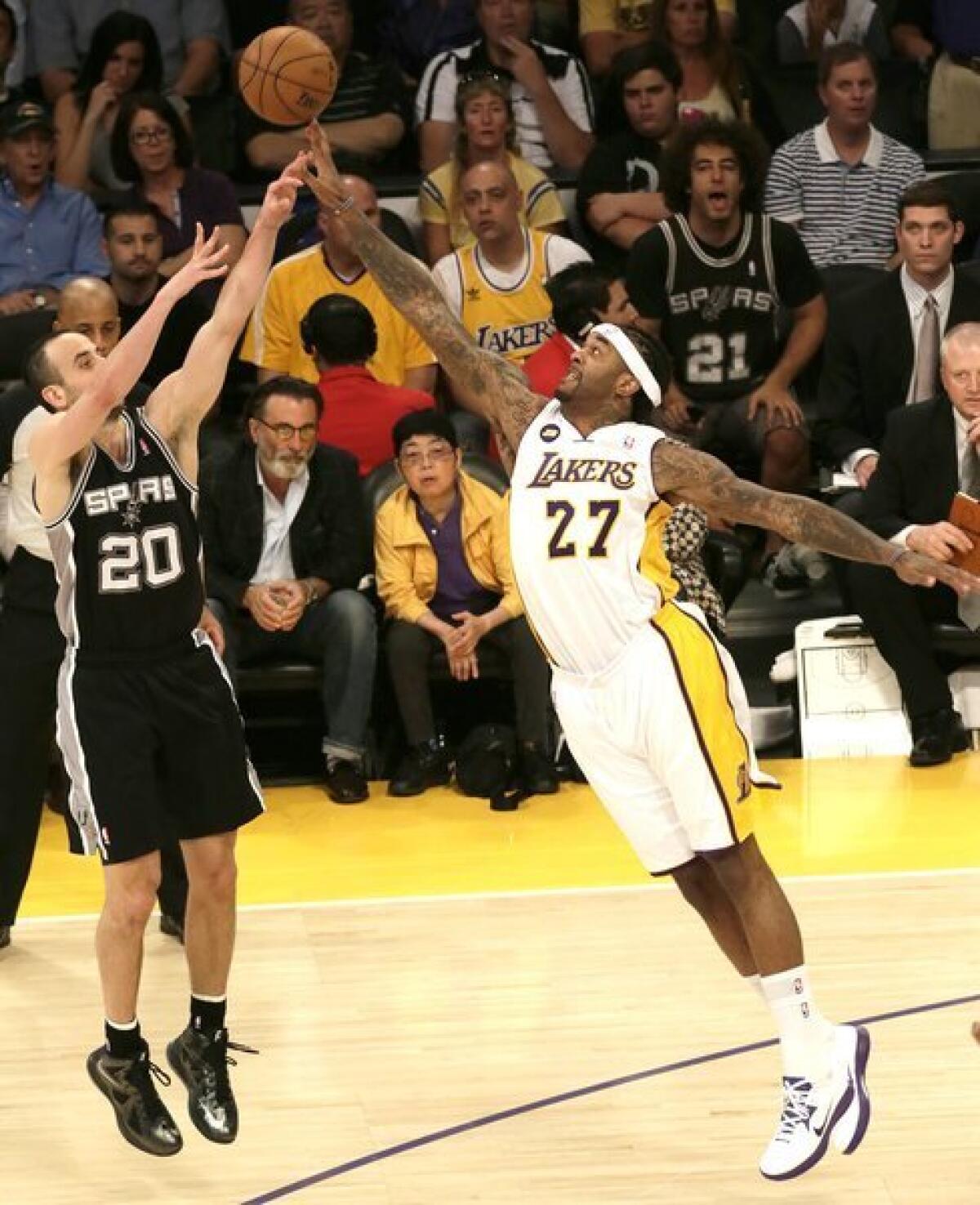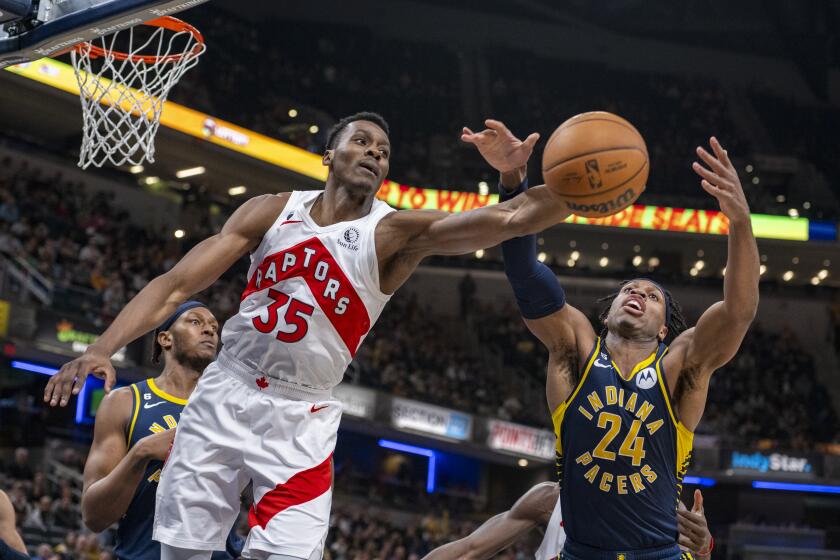Can and should Lakers get under luxury tax threshold this season?

With the amnesty of Metta World Peace along with the addition of center Chris Kaman, swingman Nick Young and point guard Jordan Farmar, the Lakers are still over the luxury tax threshold at about $75.4 million in salary.
Kaman and Young signed their contracts over the last couple of days. Farmar and the Lakers need to finish a buyout from Turkish club Andolu Efes.
Can the Lakers find a way to get below the $71.7-million luxury tax threshold?
The team still needs to add at least three players to the roster, presumably including their pick in the 2013 draft, forward Ryan Kelly. The rookie would make “only” $490,180.
If the Lakers add another couple of veterans at the minimum salary their total payroll will be about $77.6 million.
On Friday, former Times columnist Mark Heisler wrote at LakersNation.com that the Lakers might look to dump Steve Blake and Jordan Hill before the trade deadline to get below the tax threshold.
“This would re-set their clock relative to the repeater penalty, after having paid luxury tax three seasons in a row,” wrote Heisler.
The rules have changed since the 2011 lockout. The tax rates climb significantly starting this season but jump even higher in future years for teams that are repeat tax offenders.
To get an idea of the jump, a total payroll of $90 million this season would result in $39.3 million in tax -- and the repeater rate would bump that up to $57.6 million.
If the Lakers can get out of the tax for two straight seasons, they’ll avoid the repeater tax for at least the next three.
With almost all their contracts expiring after this season, the Lakers are likely to be below the threshold next season. The question becomes 2015-16. If the Lakers climb back into the taxable ranks, it would be at the repeater rate.
There’s an argument to be made that the Lakers should get out of the tax this year, given the lowered expectations with the loss of Dwight Howard along with Bryant recovering from an Achilles’ tendon injury. Sacrificing this year would enable the franchise to spend more freely over multiple years.
It might take dumping the contracts of Hill and Blake and replacing both with cheap players on minimum contracts, bringing the payroll slightly below $71.7 million to avoid the tax altogether.
An argument can be made for getting under the tax now, even if it hurts team this season.
The Lakers aren’t tanking but there’s something to be said for long-term flexibility.
ALSO:
Lakers officially sign Chris Kaman
Lakers a ‘dream come true’ for Nick Young
Robert Sacre under contract for three more years
Email Eric Pincus at eric.pincus@gmail.com and follow him on Twitter @EricPincus.
More to Read
All things Lakers, all the time.
Get all the Lakers news you need in Dan Woike's weekly newsletter.
You may occasionally receive promotional content from the Los Angeles Times.






